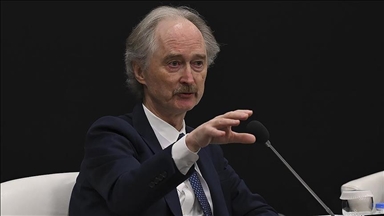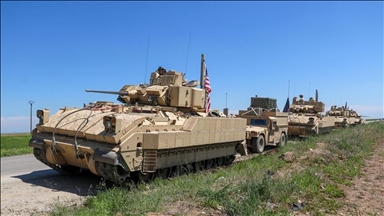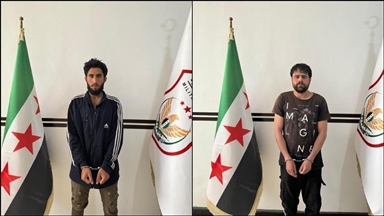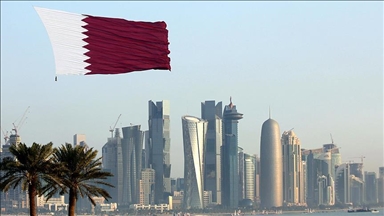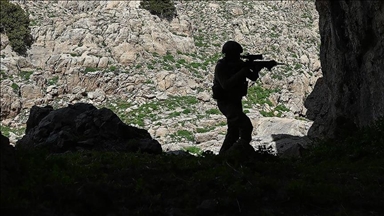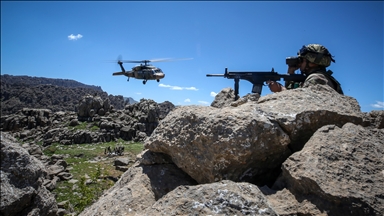Safe zone: Turkey is (and was) right about it
Turkish foreign policy promoted the idea of a safe zone, augmented by a no-fly zone, at the outset of the civil war when the Russians were not around, the Iranians had limited engagement, and Daesh was not yet plaguing the country
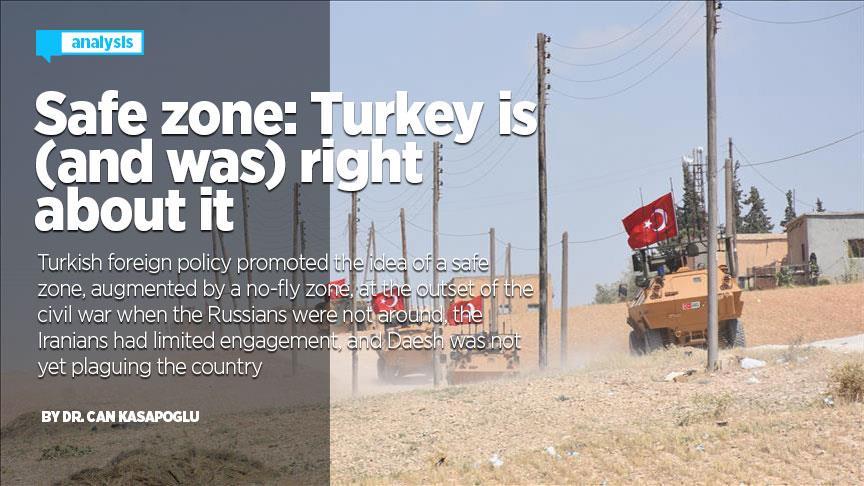
By Dr. Can Kasapoglu
- The writer is a defense analyst at the Centre for Economics and Foreign Policy (EDAM), an Istanbul-based think-tank.
ISTANBUL
Following President Trump’s withdrawal decision, Turkey fostered its preparations to stage a counter-terrorism campaign in northern Syria. As the events have unfolded in a dazzling speed, it seems Ankara and Washington are now negotiating a safe zone (460 kilometers wide, and some 30 kilometers deep, according to Anadolu Agency). In the meanwhile, the Turkish administration strives to iron out issues with the Kremlin to secure a viable, mutual understanding to execute the safe zone plan.
In the aftermath of the 2013 Ghouta chemical attacks, Ankara favored the military option to decisively deter the Baath regime from committing further crimes in kind. It took four years, and a change in the White House, for Washington to prefer the Tomahawk missiles over inspirational, yet unfulfilled (some would call ‘empty’) “redline” speeches. Likewise, the Turkish foreign policy promoted the idea of a safe zone, augmented by a no-fly zone, at the outset of the civil war when the Russians were not around, the Iranians had limited engagement, and Daesh was not yet plaguing the country. One thing is clear: had Ankara’s vision was endorsed back in 2013, Europe would not have faced the most pressing humanitarian crisis of the 21st century, the regime would not have dared to repeatedly carry out chemical attacks and barrel bombings, and today, top NATO officials would not have been talking about the emergence of an anti-access area denial (A2/AD) node in the Eastern Mediterranean.
What is in the past is in the past. Now, we have to deal with a more complicated agenda. We have a safe zone to establish through boosting the Turkish – American security cooperation, but without upsetting the rapprochement between Ankara and Moscow. In doing so, major disagreements over the PYD/YPG issue remain the wildcard.
Simple facts: Turkey is a NATO ally with legitimate concerns
Let us revisit the strategic context of the PYD/YPG issue. To date, many times, American officials have underlined that the US’ relationship with the group, which (in former Secretary of Defense Ashton Carter’s words) has “substantial ties” with the PKK terrorist organization, is transactional, tactical, and limited to anti-Daesh efforts. Likewise, it is a well-known fact that the US delivered many advanced weapons to the YPG. These deliveries include tactical game-changers, such as anti-tank guided missiles. Again, several American officials spoke of a take-back plan without citing any timeline or roadmap.
Overall, last time I checked, there was no declared intention of the US about securing a permanent ethnic autonomy in northern Syria, and turning the PYD’s armed wing YPG into something like the Lebanese Hezbollah. Starting from the outset, the plan was about hammering Daesh, depriving it from territory, and that would be all. Now, if there has been a U-turn from the initial plan, one should be aware of two clear outcomes. First, such a geopolitical change could only be realized at the expense of losing a key NATO ally. There is no way out of this tradeoff. Anyone who suggests that Washington could keep Ankara as an ally while diligently supporting the PYD is, simply, a daydreamer. Second, just like the Iranian influence blossomed in Iraq in the 2000s, the US will neither be the only nor the most influential patron of a PYD-driven autonomy. The Syrian Baath rule, and its infamous al-Mukhabarat, has way more deep-rooted experience in handling the PKK and its offshoots. Tehran’s talents in the dark arts of snatching up proxies is another story in this respect.
Furthermore, there is an unspoken issue that has not been touched upon by some overrated ‘Turkey experts’ in their tweets and op-eds. Following the early signs of the US withdrawal, the PYD has immediately engaged with the Baath regime, and called the Syrian Arab Army to take over the YPG-held positions in Manbij. Well, let us put it more bluntly. Back in April 2017, the US Navy destroyers USS Porter and USS Ross launched 59 Tomahawk cruise missiles and targeted the regime’s al-Shayrat base. After the Obama administration’s failure to protect a precious international norm, finally, this salvo marked a limited strike to draw real redlines to deter the use of chemical weapons. Assad did not get the message and continued to breach his disarmament commitments. Thus, the US, the UK, and France launched another punitive joint strike in April 2018 to deliver a stronger warning. Now, those who are enchanted by the romantic euphoria of ‘Daesh-killer, chivalric Syrian Democratic Forces’ may well want to ignore the bitter truth. But, in the blink of an eye, their principal ‘ally’ on the ground has initiated a rapprochement with the abovementioned Syrian Arab Army -- namely Assad’s forces that the US Navy previously pounded for chemical weapons use. On another note, it is worth mentioning that there is almost no general in the Syrian Arab Armed Forces’ top ranks who is not sanctioned by the US or the European Union due to systematic barrel bombing, indiscriminate use of force, or employing chemical weapons. And it is these folks who were invited by the PYD/YPG to take control of key towns along Turkey’s borders when the US withdraws...
Well, after all, both the regime and the PYD/YPG aim to forcibly change the Sunni Arab demographics (anyone who doubts this can try to read the UN Secretary General’s reports), and they share a common enemy: Turkey. Thus, ironically, their cooperation could actually make sense. In return, Ankara has each and every right to worry about this.
Never again: the Assad Clan’s old habit of waging proxy wars
In fact, the regime’s stance should come as no surprise for the experts who know the true colors of the Syrian Baath and its approach to useful armed groups. Hafez al-Assad’s rule was designated as a ‘state sponsor of terrorism’ by the US State Department. In the 1980s and 1990s, Damascus harbored the PKK, and used the terrorist organization as a proxy war instrument against Turkey. Veteran Turkish diplomats would recall that the Assad regime was so ill-mannered that the Syrian officials were even trying to bring the transboundary water resources issues to the table as a quid pro quo to discuss ceasing their support to terrorism in Turkey.
In the late 1990s, the Turkish government kicked-off a robust coercive diplomacy effort backed by the military. Only then, the elite in Damascus and Hafez al-Assad, who had come to power with a coup and established a sectarian dictatorship, felt that they could no longer keep their power positions if they insisted on threatening Turkey’s territorial integrity. As a result, Syria had to sign the Adana Protocol in 1998, underlining its commitment to put an end to supporting terrorism in Turkey.
One should also note that when the Baath regime -- a true Soviet client during the Cold War, the biggest chemical weapons possessor in the Middle East, and a staunch ally of North Korea to date -- was fighting of proxy war against a NATO nation for two decades, some of Turkey’s traditional allies were not, say, super willing to help. Without a doubt, this time, the Turkish administration would like to see greater solidarity.
Amidst the withdrawal debates, the Syrian Baath regime should well understand that Ankara has no tolerance about any possible intention of returning back to Hafez al-Assad’s notorious legacy. It is no coincidence that President Erdogan highlighted the Adana Protocol during his meeting with President Putin. Turkey will, simply, not let a reloaded proxy war threatening its national security come back. This is one of the underlying geopolitical reasons of Ankara’s safe zone plans in northeastern Syria.
* Opinions expressed in this article are the author’s own and do not necessarily reflect the editorial policy of Anadolu Agency. Anadolu Agency website contains only a portion of the news stories offered to subscribers in the AA News Broadcasting System (HAS), and in summarized form. Please contact us for subscription options.


